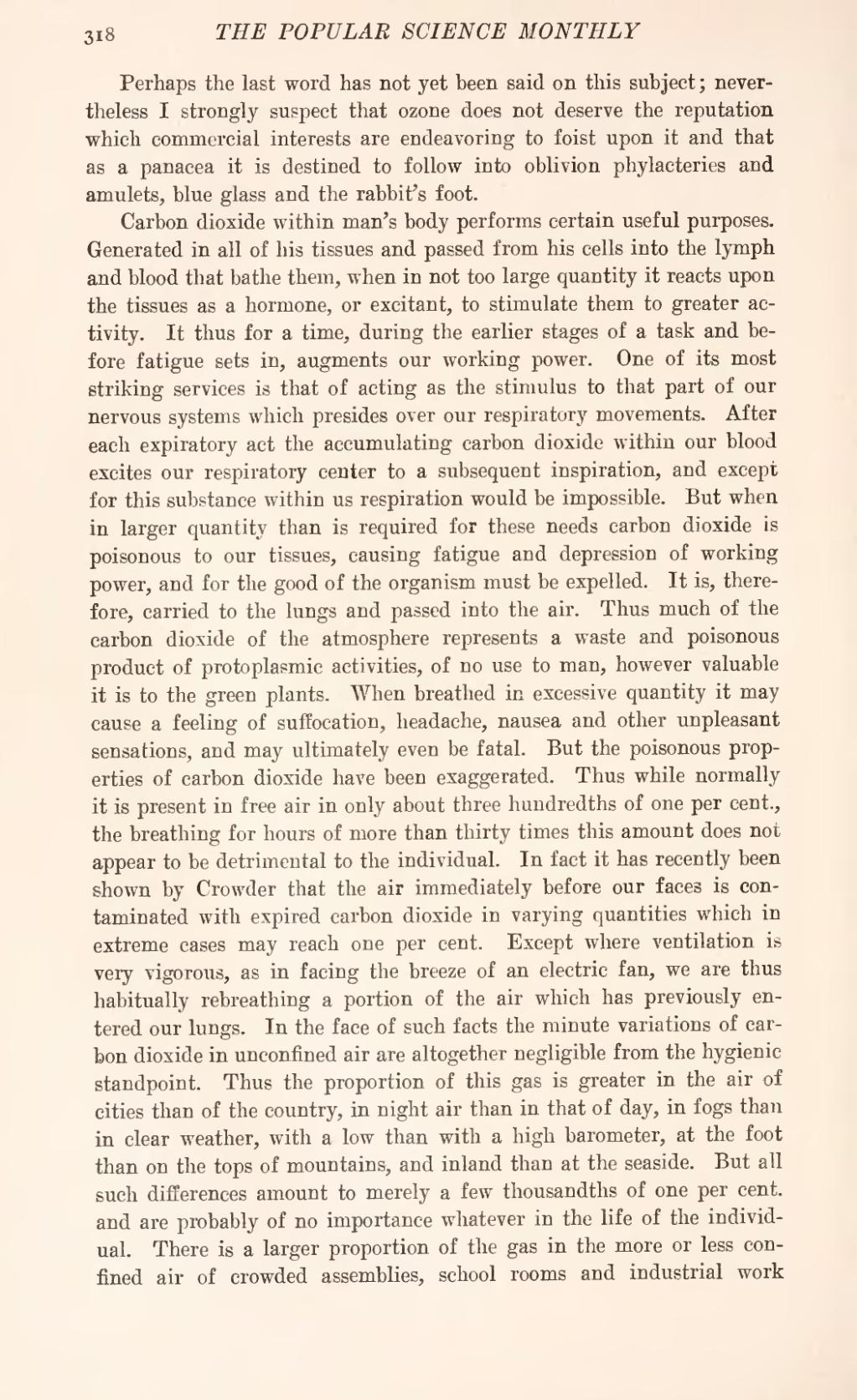Perhaps the last word has not yet been said on this subject; nevertheless I strongly suspect that ozone does not deserve the reputation which commercial interests are endeavoring to foist upon it and that as a panacea it is destined to follow into oblivion phylacteries and amulets, blue glass and the rabbit's foot.
Carbon dioxide within man's body performs certain useful purposes. Generated in all of his tissues and passed from his cells into the lymph and blood that bathe them, when in not too large quantity it reacts upon the tissues as a hormone, or excitant, to stimulate them to greater activity. It thus for a time, during the earlier stages of a task and before fatigue sets in, augments our working power. One of its most striking services is that of acting as the stimulus to that part of our nervous systems which presides over our respiratory movements. After each expiratory act the accumulating carbon dioxide within our blood excites our respiratory center to a subsequent inspiration, and except for this substance within us respiration would be impossible. But when in larger quantity than is required for these needs carbon dioxide is poisonous to our tissues, causing fatigue and depression of working power, and for the good of the organism must be expelled. It is, therefore, carried to the lungs and passed into the air. Thus much of the carbon dioxide of the atmosphere represents a waste and poisonous product of protoplasmic activities, of no use to man, however valuable it is to the green plants. When breathed in excessive quantity it may cause a feeling of suffocation, headache, nausea and other unpleasant sensations, and may ultimately even be fatal. But the poisonous properties of carbon dioxide have been exaggerated. Thus while normally it is present in free air in only about three hundredths of one per cent., the breathing for hours of more than thirty times this amount does not appear to be detrimental to the individual. In fact it has recently been shown by Crowder that the air immediately before our faces is contaminated with expired carbon dioxide in varying quantities which in extreme cases may reach one per cent. Except where ventilation is very vigorous, as in facing the breeze of an electric fan, we are thus habitually rebreathing a portion of the air which has previously entered our lungs. In the face of such facts the minute variations of carbon dioxide in unconfined air are altogether negligible from the hygienic standpoint. Thus the proportion of this gas is greater in the air of cities than of the country, in night air than in that of day, in fogs than in clear weather, with a low than with a high barometer, at the foot than on the tops of mountains, and inland than at the seaside. But all such differences amount to merely a few thousandths of one per cent, and are probably of no importance whatever in the life of the individual. There is a larger proportion of the gas in the more or less confined air of crowded assemblies, school rooms and industrial work
